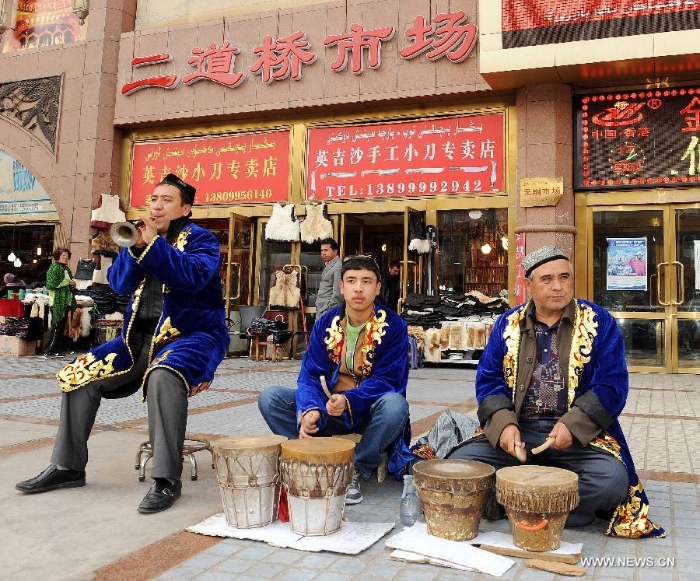
Actors of Uygur ethnic group perform in front of a bazaar ahead of the Corban Festival, or Eid al-Adha, in Urumqi, capital of northwest China's Xinjiang Uygur Autonomous Region, Oct. 25, 2012. The Eid al-Adha, also known as the Festival of Sacrifice, is an important Muslim holiday. This year's Eid al-Adha falls on Oct. 26. (Xinhua/Sadat)
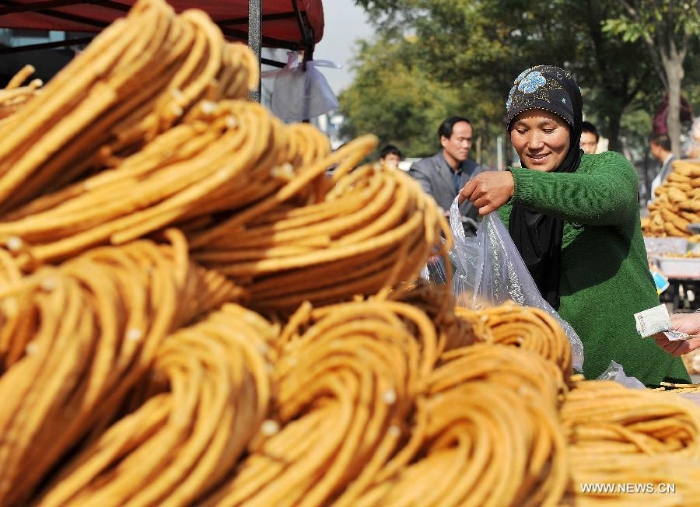
A vendor of Hui ethnic group selects Sanzi, a traditional snack, for buyers ahead of the Corban Festival, or Eid al-Adha, in Yinchuan, capital of northwest China's Ningxia Hui Autonomous Region, Oct. 25, 2012. The Eid al-Adha, also known as the Festival of Sacrifice, is an important Muslim holiday. This year's Eid al-Adha falls on Oct. 26. (Xinhua/Peng Zhaozhi)
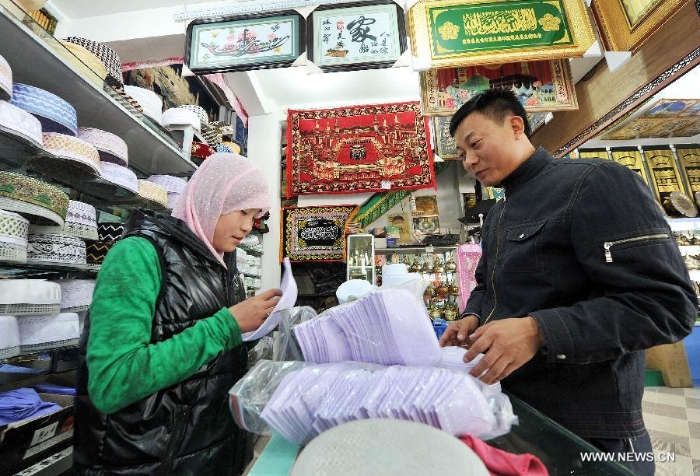
A young man of Hui ethnic group selects hats to greet the upcoming Corban Festival, or Eid al-Adha, in Yinchuan, capital of northwest China's Ningxia Hui Autonomous Region, Oct. 25, 2012. The Eid al-Adha, also known as the Festival of Sacrifice, is an important Muslim holiday. This year's Eid al-Adha falls on Oct. 26. (Xinhua/Peng Zhaozhi)
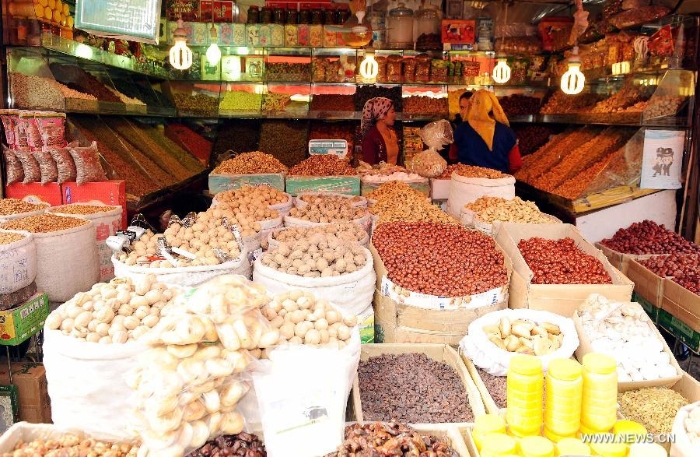
Muslims buy snacks ahead of the Corban Festival, or Eid al-Adha, in Urumqi, capital of northwest China's Xinjiang Uygur Autonomous Region, Oct. 25, 2012. Muslims will celebrate the Eid al-Adha, also known as the Festival of Sacrifice, an important Muslim holiday, on Oct. 26. (Xinhua/Sadat)
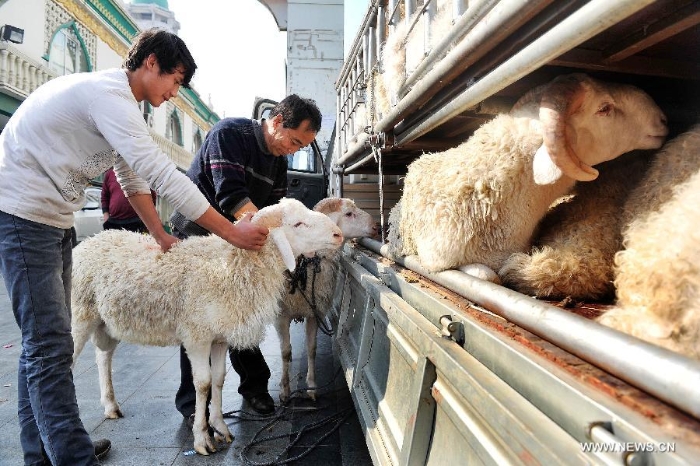
Muslims transfer lambs ahead of the Corban Festival, or Eid al-Adha, in Yinchuan, capital of northwest China's Ningxia Hui Autonomous Region, Oct. 25, 2012. The Eid al-Adha, also known as the Festival of Sacrifice, is an important Muslim holiday. This year's Eid al-Adha falls on Oct. 26. (Xinhua/Peng Zhaozhi)